Shiliuyun-Xinjiang Daily (Reporter: Otkur Nijat) news: On March 26, 2025, the melodious sounds of traditional music filled the air at the Mengyao Musical Instrument Manufacturing Farmers' Cooperative in Itipak Village, Kizilboy Town, Peyziwat County, Kashi Prefecture, northwest China’s Xinjiang Uygur Autonomous Region. Ali Amar, an inheritor of Uygur musical instrument craftsmanship, was playing instruments he had made with his employees and family.
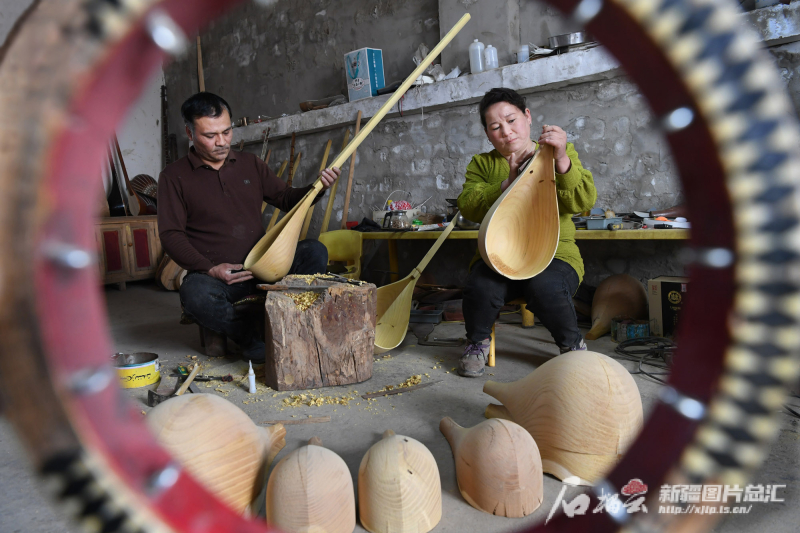
Photo taken on March 26, 2025 shows Ali Amar and his wife Anargul Ayup craft instruments together at the Mengyao Musical Instrument Manufacturing Farmers' Cooperative in Itipak Village, Kizilboy Town, Peyziwat County, Kashi Prefecture, northwest China’s Xinjiang Uygur Autonomous Region.
In Ali Amar's instrument workshop, there are wooden boards, planes, saws, and other tools, with exquisite musical instruments of various kinds hanging on the walls. As a third-generation inheritor of Uygur musical instrument craftsmanship, the 46-year-old Ali Amar creates exquisitely designed and elegantly shaped satars, dutars, and tamburs. His masterful skills showcase the refined beauty of the dutar. By selecting hard, warp-resistant mulberry or apricot wood as the primary material, he meticulously crafts the instruments through a series of steps: drawing the template, carving the wood, polishing, soaking, baking, and assembling the pieces into a gourd-like body. The body and neck are then seamlessly joined to form the basic structure of the dutar, followed by decoration, painting, and tuning. Each step reflects his unique aesthetic and superb craftsmanship.
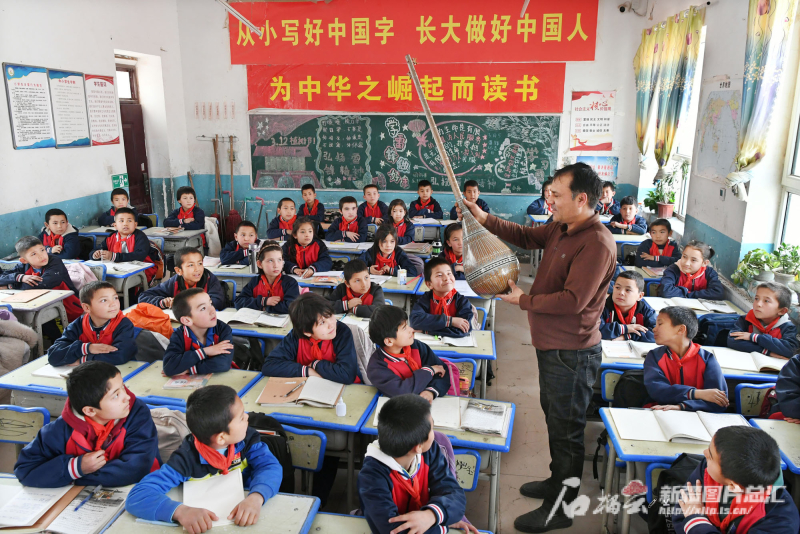
Photo taken on March 26, 2025 shows Ali Amar explains instrument knowledge to students at the music club of Itipak Village Primary School in Kizilboy Town, Peyziwat County, Kashi Prefecture, northwest China’s Xinjiang Uygur Autonomous Region.
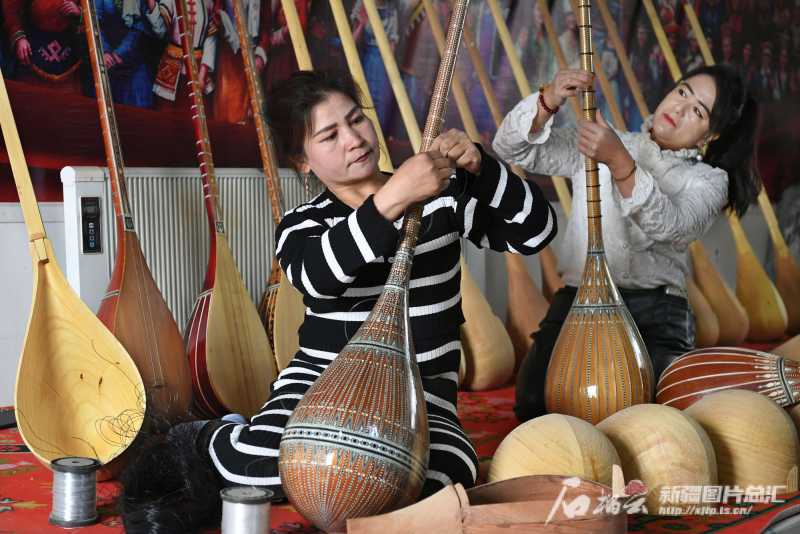
Photo taken on March 26, 2025 shows employees craft instruments at the Mengyao Musical Instrument Manufacturing Farmers' Cooperative in Itipak Village, Kizilboy Town, Peyziwat County, Kashi Prefecture, northwest China’s Xinjiang Uygur Autonomous Region.

Photo taken on March 26, 2025 shows Ali Amar and his wife Anargul Ayup craft instruments together at the Mengyao Musical Instrument Manufacturing Farmers' Cooperative in Itipak Village, Kizilboy Town, Peyziwat County, Kashi Prefecture, northwest China’s Xinjiang Uygur Autonomous Region.
Uygur musical instrument craftsmanship was included in China’s second batch of national intangible cultural heritage in 2008. As Xinjiang continues to strengthen the preservation and utilization of cultural heritage, the number of instruments listed at the national and autonomous region level of intangible cultural heritage projects has grown. Ali Amar began learning to craft satar, dutar, and tambur from his father at the age of six. Beyond instrument-making, he practices playing daily. To enhance durability, he pioneered a technique in 2005 for hollowing out mulberry wood to form a semi-gourd shape for the dutar, which is now widely adopted.
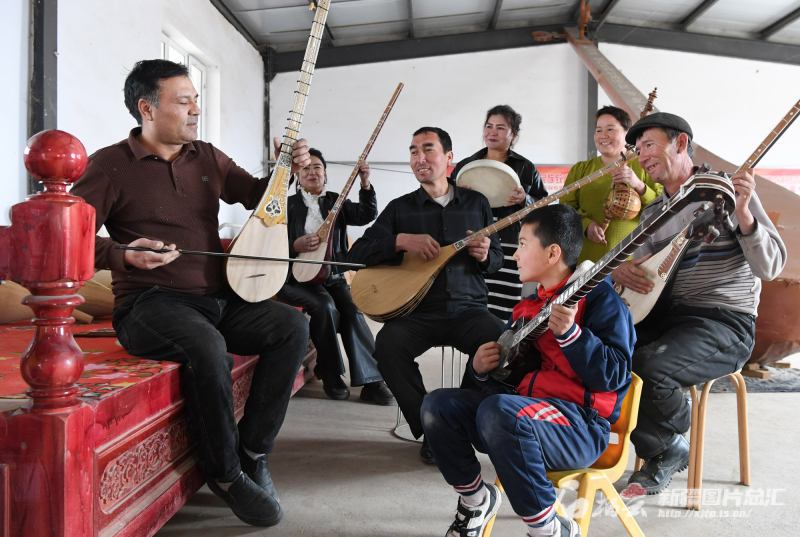
Photo taken on March 26, 2025 shows Ali Amar (left) plays musical instruments he crafted with employees and his family members at the Mengyao Musical Instrument Manufacturing Farmers' Cooperative in Itipak Village, Kizilboy Town, Peyziwat County, Kashi Prefecture, northwest China’s Xinjiang Uygur Autonomous Region.
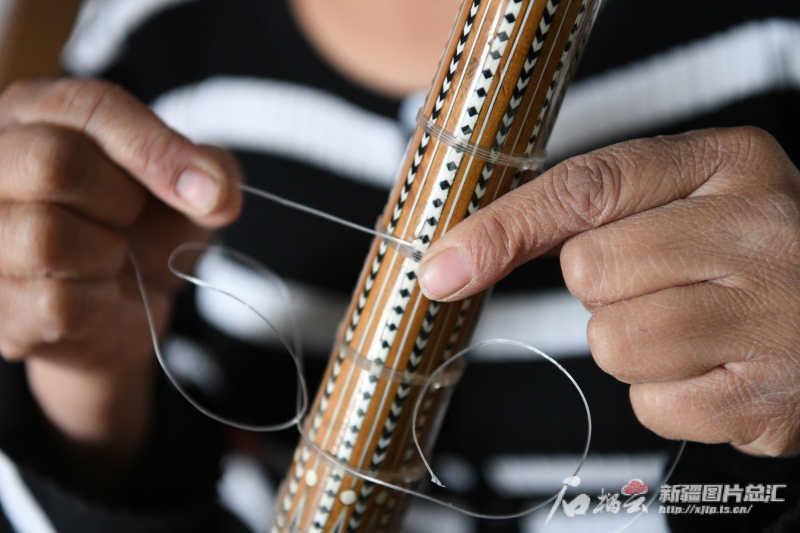
Photo taken on March 26, 2025 shows an employee makes a musical instrument at the Mengyao Musical Instrument Manufacturing Farmers' Cooperative in Itipak Village, Kizilboy Town, Peyziwat County, Kashi Prefecture, northwest China’s Xinjiang Uygur Autonomous Region.
With policy support from Peyziwat County and funding assistance from Guangdong Province’s pairing assistance program for Xinjiang, the Mengyao Musical Instrument Manufacturing Farmers' Cooperative was officially established on March 15, 2022, across from the village committee. The cooperative registered a trademark for its products and purchased production machinery, significantly improving efficiency. Production increased from fewer than 10 instruments per month in the original small workshop to nearly 100 instruments monthly, while monthly output value rose from less than 10,000 yuan to 100,000 yuan, a tenfold growth in both output and revenue. This has helped industrialize and brand Peyziwat’s ethnic musical instruments, creating a new path for villagers to increase their income and prosperity.
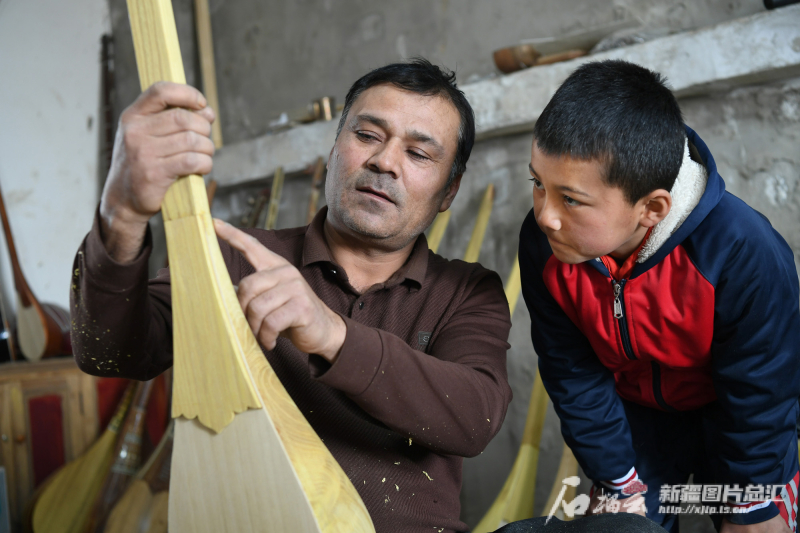
Photo taken on March 26, 2025 shows Ali Amar teaches his 10-year-old son, Omar Ali, the craft of making musical instruments at the Mengyao Musical Instrument Manufacturing Farmers' Cooperative in Itipak Village, Kizilboy Town, Peyziwat County, Kashi Prefecture, northwest China’s Xinjiang Uygur Autonomous Region.
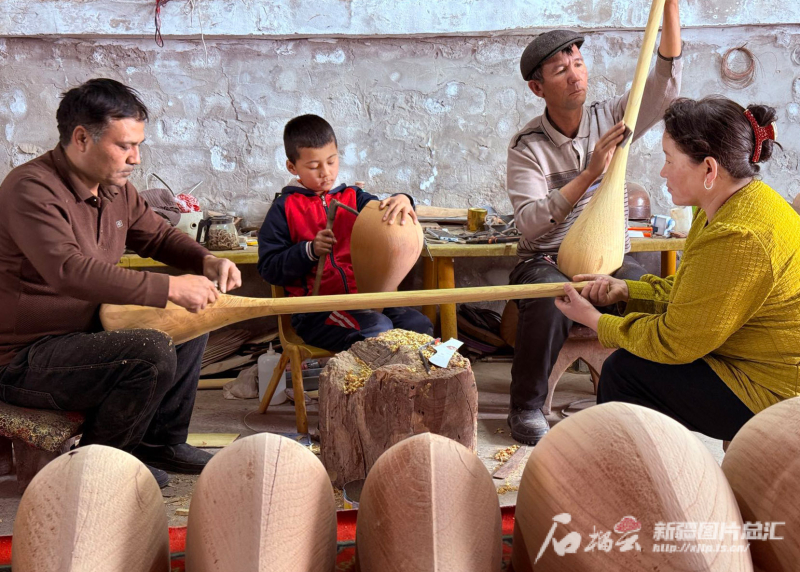
Photo taken on March 26, 2025 shows Ali Amar and his family members as well as employees make musical instruments at the Mengyao Musical Instrument Manufacturing Farmers' Cooperative in Itipak Village, Kizilboy Town, Peyziwat County, Kashi Prefecture, northwest China’s Xinjiang Uygur Autonomous Region.
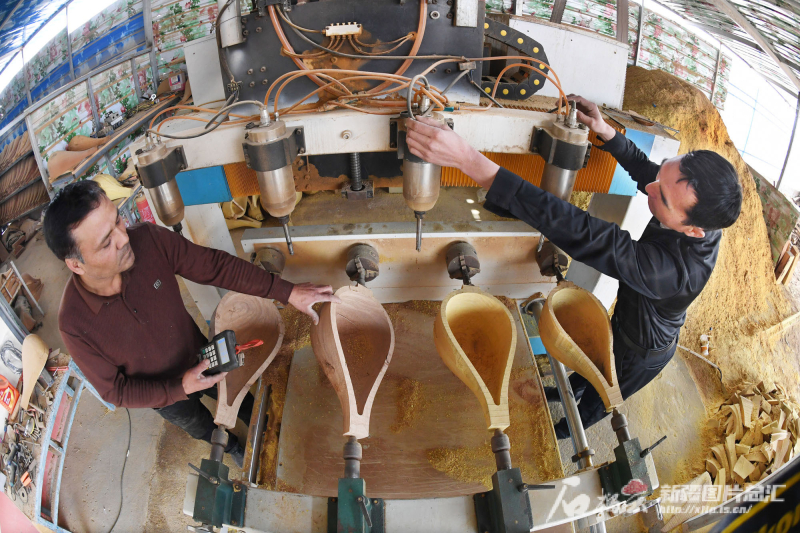
Photo taken on March 26, 2025 shows Ali Amar (left) uses machinery to produce musical instruments at the Mengyao Musical Instrument Manufacturing Farmers' Cooperative in Itipak Village, Kizilboy Town, Peyziwat County, Kashi Prefecture, northwest China’s Xinjiang Uygur Autonomous Region.
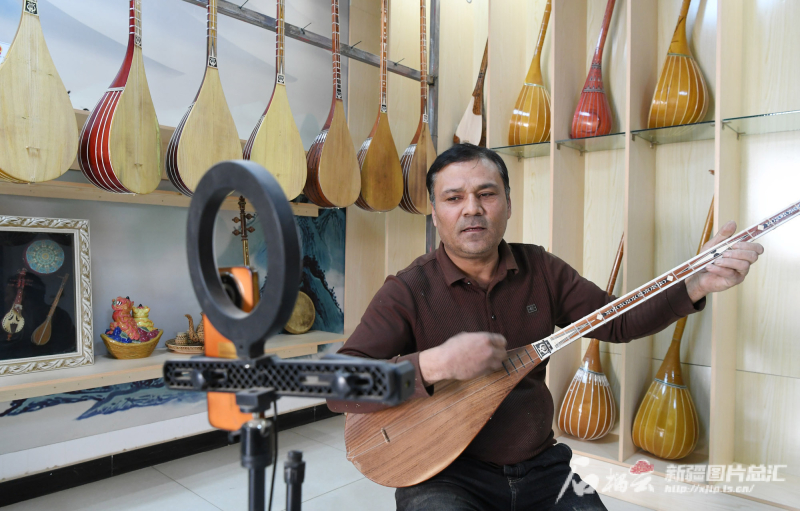
Photo taken on March 26, 2025 shows Ali Amar plays and promotes his handmade instruments online at the Mengyao Musical Instrument Manufacturing Farmers' Cooperative in Itipak Village, Kizilboy Town, Peyziwat County, Kashi Prefecture, northwest China’s Xinjiang Uygur Autonomous Region.
Ali Amar said, "Now that the cooperative has more orders, my next step is to open a training program for inheritors of this craft, recruit more apprentices, and help them learn the skills to secure employment and increase their income. Through this craft of instrument-making, our lives will keep getting better, just like the beautiful sound of the dutar."
(A written permission shall be obtained for reprinting, excerpting, copying and mirroring of the contents published on this website. Unauthorized aforementioned act shall be deemed an infringement, of which the actor shall be held accountable under the law.)









